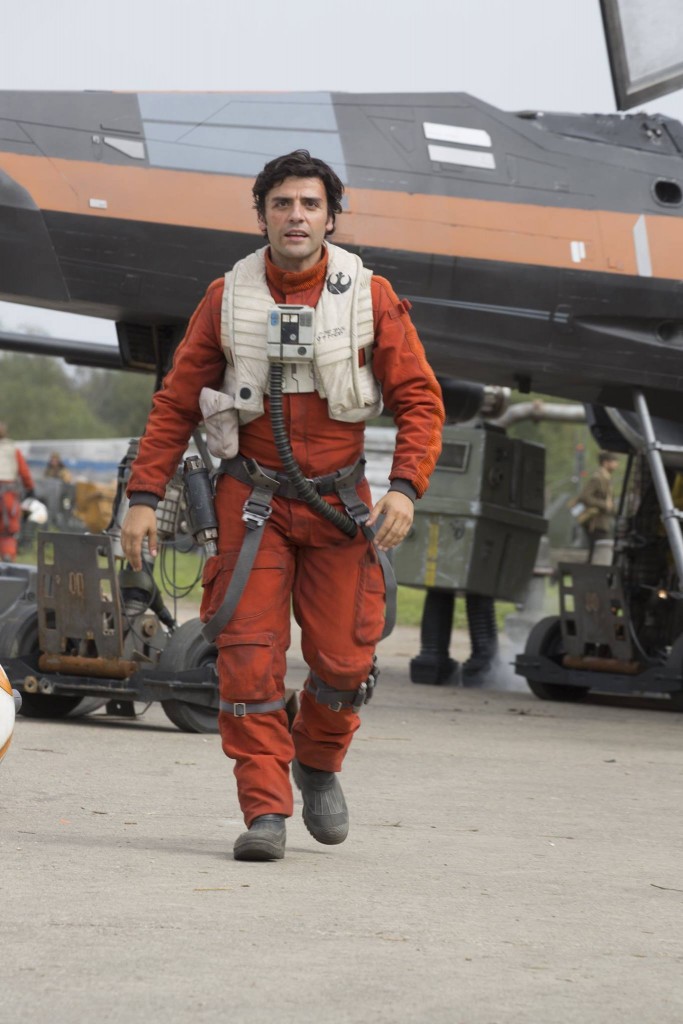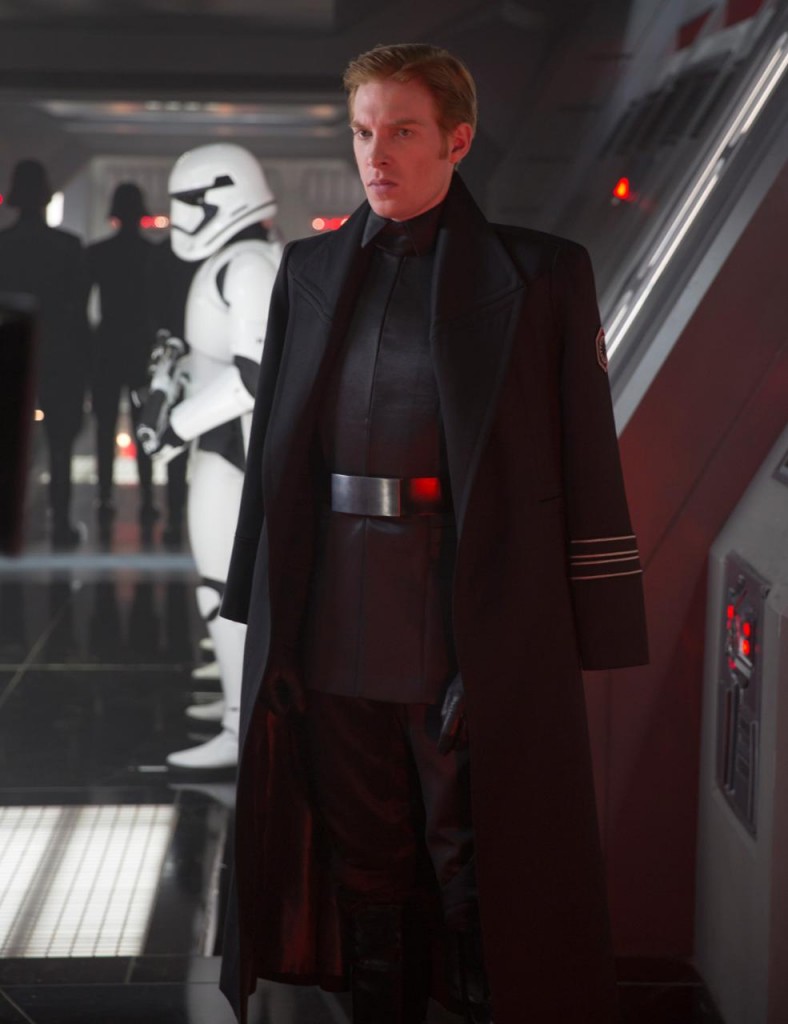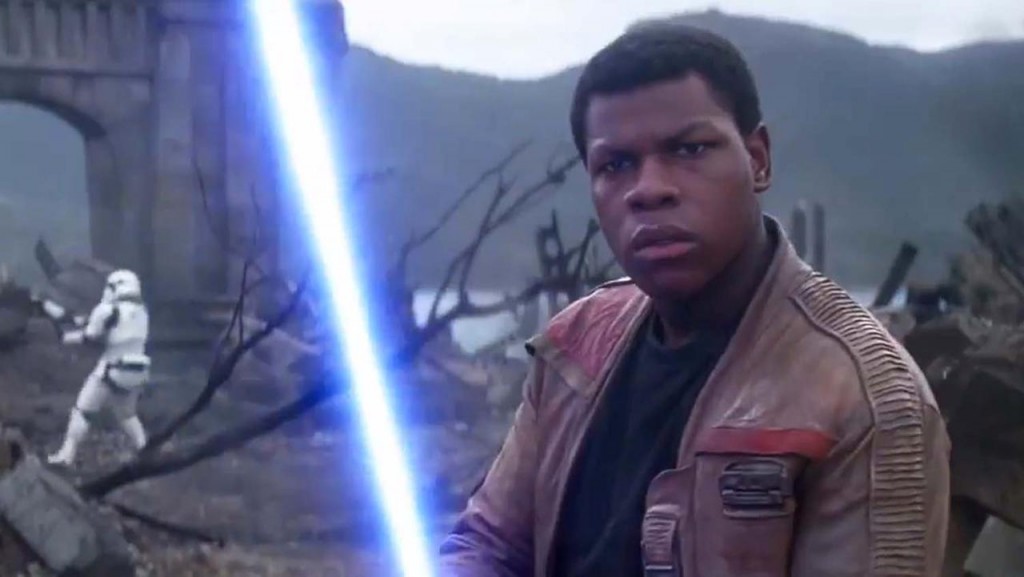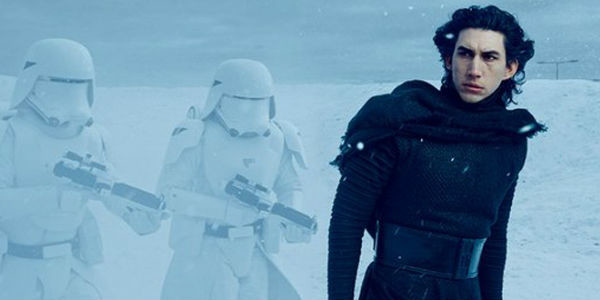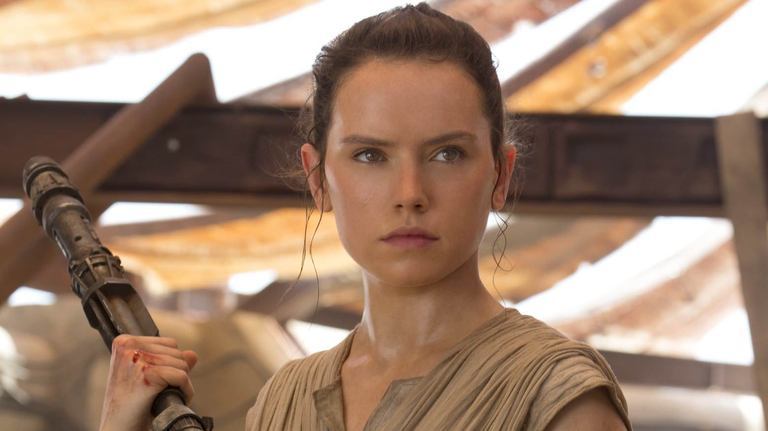Some thoughts on Star Wars: The Force Awakens: Poe Dameron and General Hux
Tale as old as time: the younger generation repeats the actions of the older generation. Each generation thinks they invented the world, but, always, there is precedent.
When A New Hope came out in 1977, its success was driven by teens but it was also a perfect family picture — adults could get lost in the nostalgia for old-timey serials, and perhaps admire the classically-hand-tooled-leather-bound storytelling, while children and teenagers could be simply thrilled and amazed as they never had been in a movie theater before. It was the Beatles of my generation, the one thing everyone agreed on.
I had never seen a Flash Gordon serial in my life, as there was no Youtube at the time, so the vision of George Lucas was a searingly brand new thing for me. I didn’t know that he’d lifted things from Flash Gordon (and many other sources), from the title crawl to the names of his characters. Nor would it have mattered to me if I did. Clearly, clearly, Lucas had added something to his endless references. Kurosawa could immediately see that Sergio Leone had stolen A Fistful of Dollars from Yojimbo, but I’m guessing he’d be hard-pressed to identify the elements George Lucas stole from The Hidden Fortress, although he would have recognized his beloved screen wipes.
Today, The Force Awakens repeats the feat of A New Hope, with a twist: children are amazed and moved by the stories of Rey and Finn, and everyone else gets lost in the nostalgia, but instead of nostalgia for other movies, it’s nostalgia for Star Wars itself. The defining feature of George Lucas’s generation of filmmakers (Spielberg, Scorsese, De Palma, Landis, Dante, Miller) was that they were the first generation of film-school directors: their movies were about other movies. Now, a generation later, filmmakers like JJ Abrams grew up on the movies of Lucas’s generation, and make movies about movies, about movies. My father was shocked at Jaws, not because of the violence in it, but because the kid who directed the movie ripped off Hitchcock at every turn and didn’t even break a sweat to do it. He took Hitchcock for granted. Now, that level of tossed-off cinematic reference is simply a part of the typical movie-going experience. In The Force Awakens, the Star Wars narrative, having launched a generation of imitators, has nothing to refer to but itself. What thirty-year-old genre could a new Star Wars movie refer to at this point?
A New Hope (God, I still hate that title) starred a cast of complete unknowns, with one special elderly guest star brought in to lend some gravitas to the proceedings. The Force Awakens repeats that trick, too, but in this case the elderly guest star is Harrison Ford, and he very much plays the Obi-Wan role, narratively speaking. The other actors are largely unknown, with the exception of Oscar Isaac, who plays Poe Dameron. Isaac, if you haven’t seen Inside Llewen Davis, A Most Violent Year or Ex Machina, is an incredibly serious capital-A Actor, the kind who, 30 years ago, wouldn’t have been caught dead in a Star Wars movie. If you can imagine Al Pacino playing a minor role in A New Hope, maybe Jabba the Hutt, with his tail being tread upon by Han Solo, that’s the level of incongruity at work here. (Not to mention Max von Sydow — Max von Sydow! — showing up briefly.)
That’s another symptom of our current generation of filmmakers. A Star Wars movie, or a Marvel movie, or a Harry Potter movie, or a Hunger Games movie, is no longer considered an embarrassment on your resume, something you did “for the money,” like Max von Sydow doing Flash Gordon (as we come full circle). It’s a badge of honor, a sign you’ve “made it.” “Serious” filmmaking used to be done in the realm of drama, and Star Wars was science fiction, a gutter genre. All that has changed now, all the serious money, and serious talent, is drawn not only to genre pictures, but juvenilia, and “serious drama” is all on television now. And Star Wars is the engine that drove that change.
But, to the question at hand: What does Poe Dameron want? Spoilers within!
some thoughts on Star Wars: The Force Awakens: Finn
Some folks on the internet find a cynical motive behind The Force Awakens‘s re-use of plot points from A New Hope. They see it as a corporation playing it safe, pandering to the audience, protecting their considerable investment. And yet, if “playing it safe” was the order of the day on the production of The Force Awakens, why are the four principle “good guys” of the movie played by a woman, a black man, a Guatemalan and a 73-year-old Jew? That sounds like idle snark, but let me assure you, movie studios are the most risk-averse institutions on the planet. I was once asked to develop a science-fiction franchise, based on a series of novels about a teenage girl trying to negotiate her way through a futuristic dystopia obsessed with beauty, and I outlined an entire trilogy, which took two and a half hours to pitch, only to have the female executive ask me if I could make the protagonist a boy. That was before The Hunger Games, of course, so now it would theoretically be “okay” to recognize that girls like science-fiction too, but to have a female protagonist with a black co-lead, and to have her kiss him in Act III? For the studio who refused to market Black Widow toys in connection with its Avengers movies, because “Disney has the girl market locked up with princess movies, thanks?” This is, I guarantee you, a bold step forward.
But, more germane to our discussion here, what does Finn want?
some thoughts on Star Wars: The Force Awakens: Kylo Ren
The true protagonist of The Force Awakens is Kylo Ren. He sets the narrative in motion and drives the action, and, in fact, “changes” the most. He also functions as the antagonist of pretty much everybody else in the movie. This kind of protagonist, once a staple of cinematic drama, is more properly called an anti-hero. An anti-hero is a protagonist who is on the opposite of a hero’s journey, a person who is bent on self-destruction. Nicolas Cage in Leaving Las Vegas comes to mind. Robert De Niro in Taxi Driver, or any of his major roles, really, is a classic example. And, of course, Darth Vader in the prequel trilogy.
More after the jump. Please don’t get your spoilers spoiled! Read more
some thoughts on Star Wars: The Force Awakens Rey
It seems hard to believe that everyone in the world hasn’t already seen this movie, but, just in case, please be advised that there are spoilers ahead.
